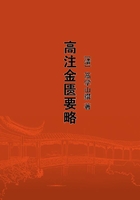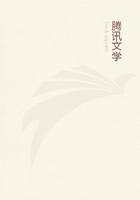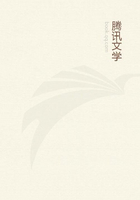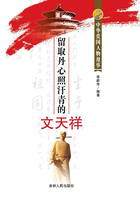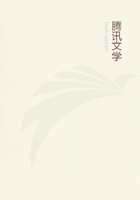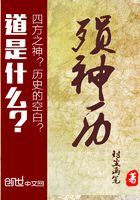It seems to be expressed by such a view that human action as regards Nature is ungodly; that the operations of Nature are divine operations, but what man produces is ungodly. But the productions of human reason might, at least, be esteemed as much as Nature. In so doing, however, we cede less to reason than is permitted to us. If the life and the action of animals be divine, human action must stand much higher, and must be worthy to be called divine in an infinitely higher sense. The pre-eminence of human thought must forthwith be avowed. Christ says on this subject (Matt. vi. 26-30), "Behold the fowls of the air," (in which we may also include the Ibis and the Kokilas,) "are ye not much better than they? Wherefore, if God so clothe the grass of the field, which to-day is, and to-morrow is cast into the oven, shall He not much more clothe you?" The superiority of man, of the image of God, to animals and plants is indeed implicitly and explicitly established, but in asking wherein the divine element is to be sought and seen - in making use of such expressions - none of the superior, but only the inferior nature, is indicated. Similarly, in regard to the knowledge of God, it is remarkable that Christ places the knowledge of and faith in Him not in any admiration of the creatures of nature nor in marvelling at any so-called dominion over them, nor in signs and wonders, but in the witness of the Spirit. Spirit is infinitely high above Nature, in it the Divine Nature manifests itself more than in Nature.
But the form in which the universal content which is in and for itself, first belongs to Philosophy is the form of Thought, the form of the universal itself. In Religion, however, this content is for immediate and outward perception, and further for idea and sensation through art. The import is for the sensuous nature; it is the evidence of the Mind which comprehends that content. To make this clearer, the difference must be recollected between that which we are and have, and how we know the same - that is, in what manner we know it and have it as our object. This distinction is an infinitely important matter, and it alone is concerned in the culture of races and of individuals. We are men and have reason; what is human, or above all, what is rational vibrates within us, both in our feelings, mind and heart and in our subjective nature generally. It is in this corresponding vibration and in the corresponding motion effected that a particular content becomes our own and is like our own. The manifold nature of the determinations which it contains is concentrated and wrapt up within this inward nature - an obscure motion of Mind in itself and in universal substantiality. The content is thus directly identical with the simple abstract certainty of ourselves and with self-consciousness. But Mind, because it is Mind, is as truly consciousness. What is confined within itself in its simplicity must be objective to itself and must come to be known. The whole difference lies in the manner and method of this objectivity, and hence in the manner and method of consciousness.
This method and manner extends from the simple expression of the dullness of mere feeling to the most objective form, to that which is in and for itself objective, to Thought. The most simple, most formal objectivity is the expression of a name for that feeling and for the state of mind according with it, as seen in these words, worship, prayer, etc. Such. expressions as "Let us pray" and "Let us worship" are simply the recalling of that feeling. But "Let us think about God" brings with it something more; it expresses the absolutely embracing content of that substantial feeling, and the object, which differs from mere sensation as subjective self-conscious activity; or which is content distinguished from this activity as form. This object, however, comprehending in itself the whole substantial content, is itself still undeveloped and entirely undetermined. To develop that content, to comprehend, express and bring to consciousness its relations, is the commencement, creation and manifestation of Religion. The form in which this developed content first possesses objectivity is that of immediate perception, of sensuous idea or of a more defined idea deduced from natural, physical or mental manifestations and conditions.
Art brings about this consciousness, in that it gives permanence and cohesion to the fleeting visible appearance through which objectivity passes in sensation. The shapeless, sacred stone, the more place, or whatever it is to which the desire for objectivity first attaches itself, receives from art, form, feature, determinate character and content which can be known and which is now present for consciousness. Art has thus become the instructress of the people. This was the case with Homer and Hesiod for instance, who, according to Herodotus (II. 53), "Made the Greeks their Theogony," because they elevated and consolidated ideas and traditions in unison with the spirit of the people, wherever and in whatever confusion they might be found, into definite images and ideas. This is not the art which merely gives expression in its own way to the content, already perfectly expressed, of a Religion which in thought, idea and words has already attained complete development; that is to say, which puts its matter into stone, canvas, or words as is done by modern art, which, in dealing either with religious or with historical objects, takes as its groundwork ideas and thoughts which are already there. The consciousness of this Religion is rather the product of thinking imagination, or of thought which comprehends through the organ of imagination alone and finds expression in its forms.


